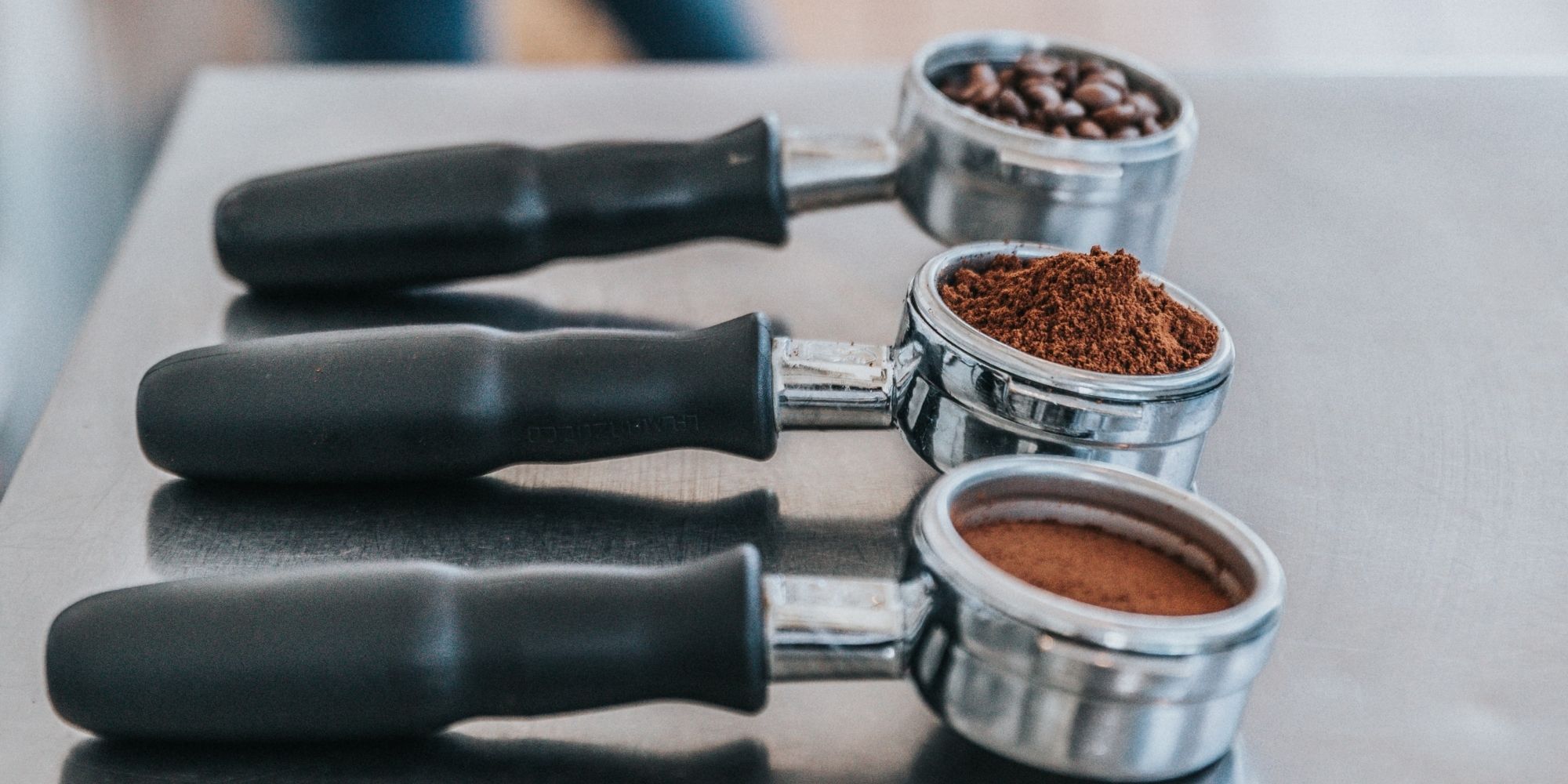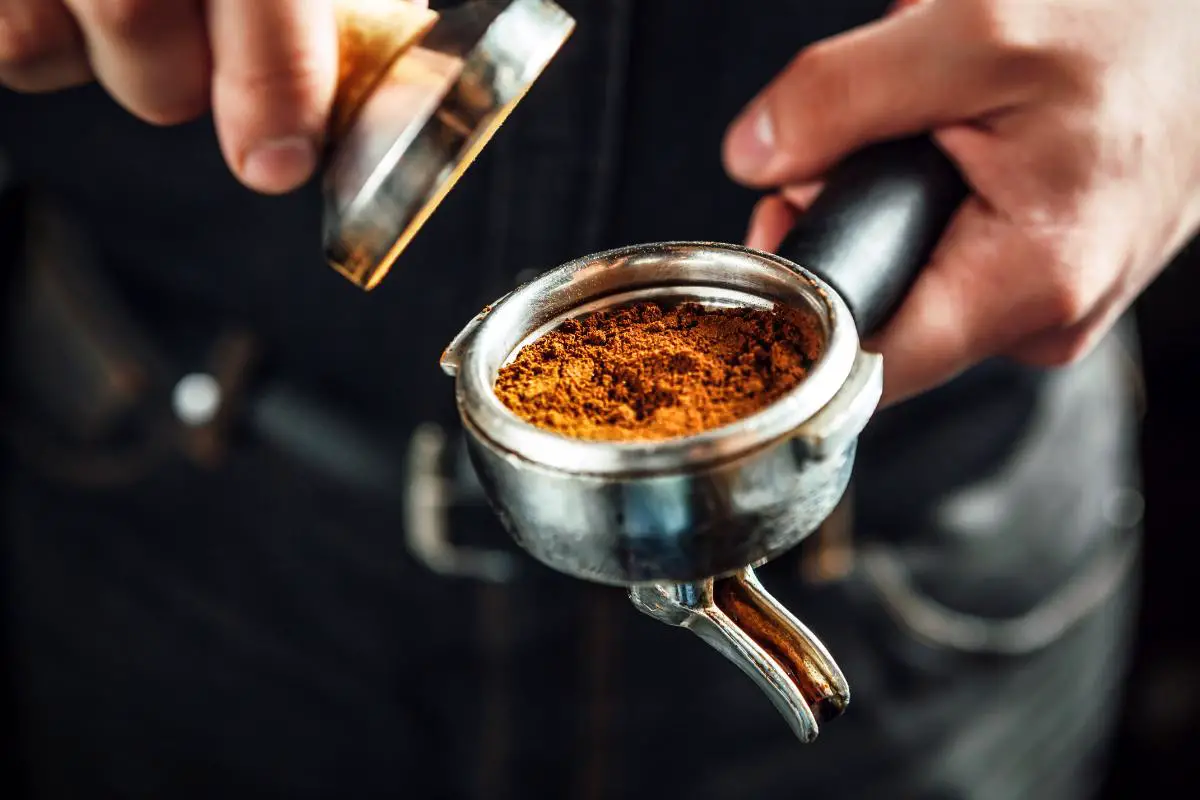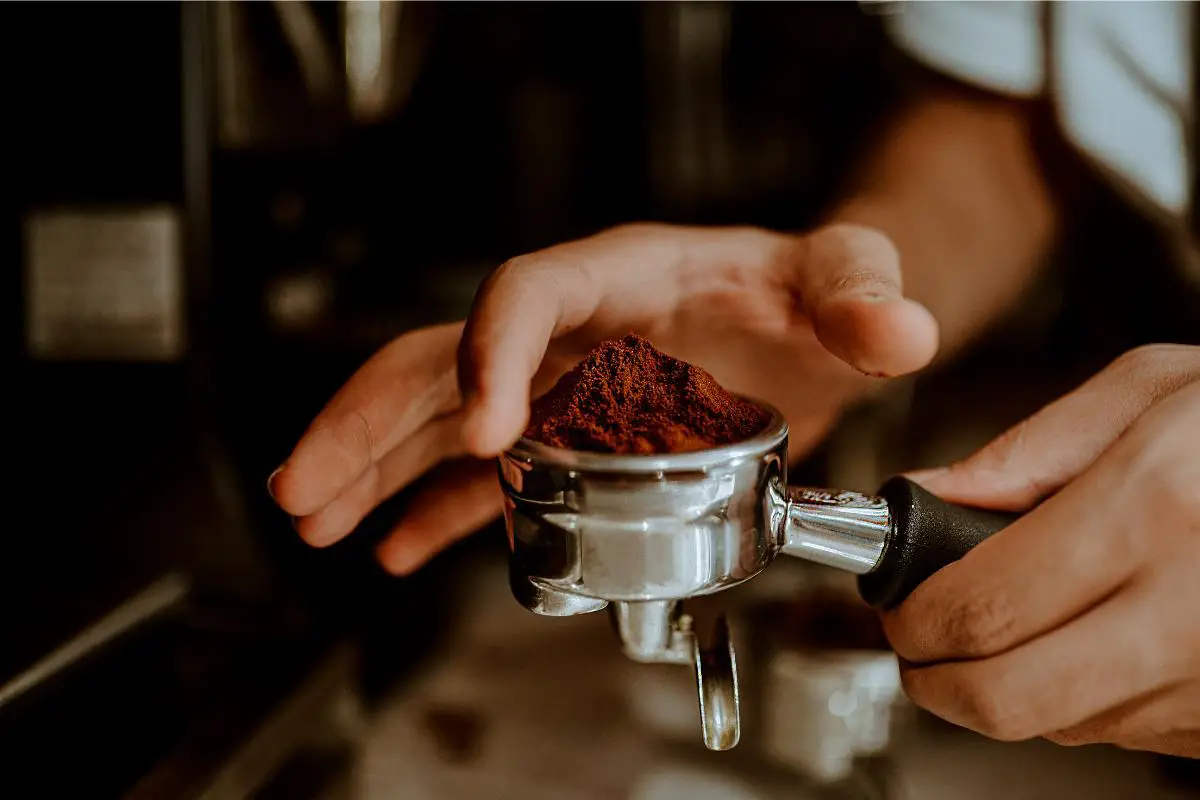With over 9 million bags of coffee being exported annually, many consumers struggle to distinguish the difference between ground and instant coffee.
The two main types of coffee beans are Arabica and Robusta, which are ground into different forms for brewing.
In a hurry? Here are 2 suitably priced ground and instant coffees from Amazon;
- Whole Bean – Stumptown Coffee Roasters
- Instant – Mount Hagen Organic Instant Coffee
There are many types of coffee available in the market today, but there are two primary ways to be brewed – either by using a filter machine or by adding hot water to powder form.
So what exactly is the difference between ground and instant coffee?
Instant coffee is a ready-to-drink beverage that can be prepared fast and efficiently with hot water or milk, and on the other hand, ground coffee requires a filter and brewing process before being ready for drinking.
Ground coffee and instant coffee come from the same beans, however, they are processed differently to obtain the final product that you see in the store.
In this article, we will give you seven significant differences between ground and instant coffees to help you save time and money.
Table of Contents
7 Main Differences Between Ground and Instant Coffee
1. Caffeine Content
Ground coffee and instant coffee contain caffeine, however, ground coffee contains more caffeine than instant coffee in different amounts.
Ground coffee contains all its ingredients and therefore it can provide higher caffeine content to the consumer.
This is because other compounds in the coffee bean absorb caffeine to different levels (e.g., caffeol).
2. Added Ingredients
Instant drinks are a ready-to-drink beverage that only needs water or milk heated at 100/212 for preparation.
Ground coffee on the other hand, requires a filter and brewing process before it’s ready for drinking – this excludes milk and sugar from the recipe unless you want your coffee tasting like hot flavoured milk with a burnt caramel taste.
Therefore ground coffees generally contain added milk or sugar by default, while instant drinks don’t need any additional ingredients unless needed.
3. Mixing Ground Coffee with Water or Milk
Mixing ground coffee with hot water or milk is as easy as 1, 2, 3… but wait a minute! Generally, I would recommend not mixing it using a spoon because this will break the precious floating grinds and make your drink less flavourful.
Instead of using a spoon, I recommend pouring instant coffee powder first into a cup, then adding hot water or milk on top of the powder – this way, you will leave all the fine solids intact and provide richer flavour to the drinker.
4. Time Required for Preparation
Instant drinks can be prepared fast and efficiently by adding hot water or milk for ~30 seconds in total (add boiling water first, let it sit for a few minutes, then add milk or sugar).
On the other hand, ground coffee requires a filter and brewing process before it’s ready for drinking.
This is why there are two types of drip coffee makers: one that uses paper filters (e.g., Chemex or Hario v60 ) that takes ~5 minutes of total preparation time, while the other type uses metal/cloth filters which usually takes ~2-3 minutes before you can enjoy your cup of coffee.

5. Serving Size
Ground coffee contains all its ingredients, providing higher caffeine content to the drinker when prepared with hot water or milk instead of added sugar or dairy.
So if you need a more decisive caffeine kick in your drink – try drinking a cup of ground coffee instead.
On the other hand, instant drinks are diluted with water or milk during preparation to make them ready for drinking.
Therefore, you will need additional ingredients to make your glass stronger in taste and caffeine content.
6. Storage Method and Shelf Life
Ground coffee should be kept airtight and away from direct sunlight at room temperature (e.g., kitchen cabinet).
This will prevent moisture absorption that could alter the flavour profile and reduce its shelf life resulting in lost flavour within a few weeks to months.
On the other hand, instant coffee should also be kept airtight but away from heat sources such as stoves, ovens, or microwaves.
This may cause product inconsistency due to elevated temperatures, so if you want to keep your instant drink fresh and flavourful – try making a new cup every time.
7. Carbon Dioxide (CO2) Production
Carbon dioxide produced during the roasting of coffee beans is one of the most factors that affect beans’ flavour profile after roasting.
Coffee roasters use CO2 analysers such as Non-Dispersive Infrared (NDIR) and Fourier Transform Infrared (FTIR) to measure the amount of CO2 produced by roasted coffee beans during the roasting process.
This helps them adjust various factors such as temperature or airflow during the process to minimise the amount of carbon dioxide lost before reaching the final product.
While instant drinks don’t undergo any roasting process, resulting in little or no carbon dioxide produced during the process.

What Are The Advantages Of Instant Coffee?
1.) Saves Time
Instant coffee can save time from waiting for a pot of brewed coffee as the powder takes only seconds to dissolve in water, milk, or cream.
This can be useful if someone is rushing out the door or needs a fast morning jolt of caffeine.
2.) Dilution
Creating instant coffee allows for control on how much you want your drink diluted by adding more or less powder into the mix compared to regular brewed coffee, which gets poured straight into a cup.
3.) Variety
Instant coffee can come in two forms of powder and liquid concentrates, giving the consumer the option to use their preferred type.
Because instant coffee is so versatile, it can even be created to fit specific dietary needs, such as vegan or gluten-free.
Although there are many brands of instant coffee variations, one brand that offers several different types of instant coffee options is Gourmesso.
Gourmesso provides customers with more specialty drinks using flavoured syrups like cinnamon, hazelnut, and vanilla instead of just offering traditional plain latte’s or cappuccinos.
4.) Quality
The quality between fresh-brewed coffee vs. instant depends on preparation; however, many factors contribute to the quality of the finished drink.
The more freshly roasted and ground coffee beans used to produce the powder can enhance the taste.
Also, adding milk or sugar into caffeinated beverages like espresso shots can diminish caffeine’s naturally occurring properties in coffee, which many people enjoy.
5.) Availability
Instant coffee is more widely available than most would think, as it can be found on shelves at grocery stores, pharmacies, and convenience stores alike.
This gives people access to a quick cup of instant coffee whenever they need it.
Instant coffee also comes in single-serve packaging, so if one needs an extra boost of energy during lunch breaks at work, instant coffees are easy to pack into lunches or travel with on the go.
What Are The Disadvantages Of Instant Coffee
1.) Energy drinks are more popular
Instant coffee is old-fashioned compared to the energy drink market.
Energy drinks are newer, they provide caffeine per cup size, and they are marketed as an excellent beverage that can be consumed any time of day.
2.) It doesn’t taste good
Consumers have widely accepted the flavour of instant coffee, and most people find it to be bitter or overly acidic with only a hint of coffee flavour.
Also, instant coffee does not have the complexity of flavours found in brewed coffee because it does not go through any brewing process.

What Are The Advantages Of Ground Coffee?
This is because there is more surface area on ground coffee than if it were the whole bean.
This means that when the water hits the grounds, it will extract more flavour at once, producing an overall more pungent taste of coffee than if it were a whole bean.
1.) Better tasting
Grinding your own coffee is a step in the right direction if you want to enjoy a delicious cup of coffee. Similar to other things, fresh is always better.
Apart from the great aromas and tastes obtained from freshly ground coffee, you will be able to control the grind size, which has a huge impact on flavour.
2.) Also less expensive by volume (and usually by weight too!)
According to sevenmilescoffee.au, in Australia, coffee from a typical wholesale coffee roaster can range in price.
From $20/kg (for low quality coffee with no equipment or support) through to $35/kg or more (for high quality coffee with equipment & support), with most cafes paying somewhere between $25-$30/kg.
3.) Easy Storage
On average, coffee beans will keep fresh for around a week or two, if not placed in an airtight container which conserves their freshness and flavour.
This is why it’s a good idea to buy coffee beans that have a recent roast date, from a week or two ago.
4.) Lower acidity
There’s a growing market for low-acid coffee beans.
Some of these are naturally produced in a way that reduces their acid content, others have compounds added to them to tame the burn.
What Are The Disadvantages Of Ground Coffee?
1.) Using too much coffee in a cup may brew a bitter and unpleasant tasting cup of coffee
Using too much coffee in a cup makes the drinker taste the bitter, burnt flavour in lower Quality or old ground coffees.
The correct amount of ground coffee for making one cup of brewed coffee is two tablespoons to every 6 ounces of water.
2.) Coffee grounds may be used only once before they begin to lose their flavour and freshness
Coffee grounds can be reused up to 4 times for each beverage you make at home.
The best way to prevent this from happening is to take out what you want to use and put it into another airtight container so that it does not lose its freshness and flavour during storage.
3.) Coffee ground can leave a mess if left on a counter or table
Coffee grounds may leave a mess if left out on a counter or tabletop for an extended time.
To avoid this, place the coffee beans into storage as soon as you are finished using them so that they do not have to chance to become dirty and create a mess.
This can be done by placing them in an airtight container to remain fresh until the next brewing cycle comes around again.
How Is Instant Coffee Made?
Instant coffee, also known as soluble coffee, is a beverage prepared from roasted ground beans. Instant coffees usually have an acceptable form and are high in acidity.
The roasting process after grinding helps get rid of moisture and makes it easier for water to dissolve.
Difference Between Ground and Instant Coffee F.A.Q’s

A. Ground coffee beans are only part soluble and will not be able to dissolve in water.
When trying to dissolve ground coffee beans, at least 70% of the granules will be left at the bottom of the mug.
A. To keep costs low, instant coffee manufacturers mostly use the low-quality and cheaper robusta variety of coffee.
A. Yes, grinding your own coffee beans is cheaper.
Though instant coffee might come at the same price, you will get sub-par coffee that has a stale flavour.
Even though you pay the same money when grinding your coffee beans, you will get a far superior coffee that has a rich aroma and taste.
A. Instant coffee is bitter because of the presence of Chlorogenic acid.
If the coffee beans were lightly roasted, then the instant coffee would have a large amount of Chlorogenic acid making it sour in taste.
Conclusion: Difference Between Ground and Instant Coffee
To sum it all up, instant coffee and ground coffee are both coffee, of all varieties and roasts.
But instant coffee is a cup of coffee that’s already been brewed and has been processed and preserved in packaging.
Ground coffee is prepared by grinding roasted whole coffee beans into fine granules that can be made into coffee at any time with a variety of different brewing methods.
In contrast, instant coffee can be brewed instantly using hot water without any waiting period required to grind the coffee beans.
Therefore, it would be clear that instant coffee is not a coffee bean but prepared using the powder form of regular ground coffee.
Overall, there is no right and wrong decision between the two, as ultimately it comes down to personal preferences
However, by using ground coffee to prepare your brew, you will be enabling yourself to yield much better results.
If you enjoyed this article, read more like this by checking out our Specialty Coffee Beginners Guides.




